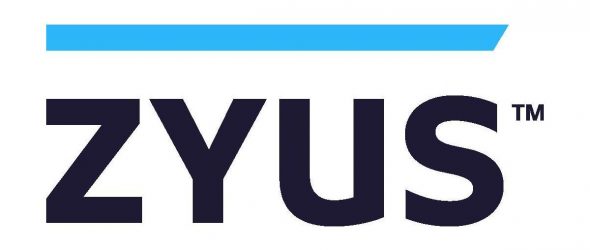SASKATOON, Saskatchewan–(BUSINESS WIRE)–ZYUS Life Sciences Inc. (“ZYUS”), a company dedicated to improving quality of life through research and leadership in bio-pharmaceuticals and cannabinoid-based formulations, announced today that it has reached a positive milestone in the development of COVID-19 vaccine components by achieving plant-based expression, isolation, and purification of a potential antigen for a SARS-CoV-2 vaccine – providing proof of concept for plant-based COVID-19 antigen production.
Over the past months, ZYUS researchers have been working to determine whether plants can offer an alternative method of antigen production to traditional production methods for vaccines. Plant-based antigen production, leveraging ZYUS’ proprietary bio-technology platform, offers the potential to produce large quantities of vaccine-quality antigens rapidly and efficiently.
Key ZYUS research and development achievements include:
- Successful expression of a protein found on the outer surface of the virus responsible for COVID-19 in Nicotiana benthamiana, a variety of the tobacco plant, demonstrating ZYUS’ ability to engineer the production of the protein in plants.
- Successful extraction of the protein from plants and pilot-scale purification, establishing that it is possible to purify the protein from plants using ZYUS’ plant expression technology.
- Meaningful recovery of the protein from plants, establishing that ZYUS’ plant expression technology offers an efficient means of protein production relative to the starting amount of plant material.
- Tested and demonstrated that the plant-based SARS-CoV-2 protein is recognised by antibodies in the serum of recovered COVID-19 patients, suggesting that plant-based protein, in this form of a vaccine, could potentially provide protection from COVID-19 infection.
“Rapid production of large quantities of an antigen with suitable purity and quality is a critical step in developing a vaccine for COVID-19,” said Brent Zettl, ZYUS CEO. “These preliminary test results are an important step forward, offering scientists and researchers more options to scale vaccine production in the global fight against COVID-19.”
ZYUS intends to provide its research collaborators, the University of Saskatchewan’s Vaccine and Infectious Disease Organization-International Vaccine Centre (VIDO-InterVac), with enough purified protein to formulate and test the vaccine’s effectiveness in animal models in the coming weeks.
About ZYUS Life Sciences Inc.
ZYUS is a Canadian-based life sciences company focused on the global development and commercialization of innovative cannabinoid-based therapeutics and product candidates. Through clinical research and IP development, we intend to deliver high-quality oils, gel-caps, topical creams and other cannabinoid-based therapeutics and product candidates to patients worldwide. The ZYUS vision is to elevate cannabinoids as a standard of care and expand the potential of protein-based formulations in pursuit of a transformational impact on patients’ lives. ZYUS: Advancing the Science of Well-Being. Visit www.zyus.com
About VIDO-InterVac, University of Saskatchewan
The University of Saskatchewan’s VIDO-InterVac is internationally recognized for its role in vaccine development and is one of Canada’s national science facilities. VIDO-InterVac has a history of vaccine development and commercialization – eight of its vaccines have been sold commercially, and six have been described as world-firsts. VIDO-InterVac was created in 1975. The ~170-member organization operates using an ISO:9001 certified management system in state-of-the-art containment level 2 and 3 facilities. VIDO-InterVac receives operating support from the Government of Canada, and Government of Saskatchewan. Visit www.vido.org
Forward-Looking Information
This news release contains forward-looking statements. Forward-looking statements involve known and unknown risks, uncertainties and other factors which may cause the actual results, performance or achievements of ZYUS to be materially different from any future results, performance or achievements expressed or implied by the forward-looking statements. These forward-looking statements include, but are not limited to expectations with respect to our business plans, research activities and product lines.
Often, but not always, forward-looking statements can be identified by the use of words such as “expects,” “expected,” “expectation,” “anticipates,” “believes,” “intends,” “estimates,” “predicts,” “continues,” “potential,” “targeted,” “plans,” “possible” and similar expressions, or statements that events, conditions or results “will,” “may,” “could,” “would” or “should” occur or be achieved, or the negative of these terms or other comparable terminology. Forward-looking statements are based on certain assumptions and are subject to various known and unknown risks and uncertainties, many of which are beyond the Company’s control, and cannot be predicted or quantified and consequently, actual results may differ materially from those expressed or implied by such forward-looking statements.
Accordingly, readers should not place undue reliance on the forward-looking statements and information contained in this press release. Since forward-looking statements and information address future events and conditions, by their very nature they involve inherent risks and uncertainties.
Research is of an experimental nature and no particular results can be guaranteed. Actual results of the research discussed could differ materially from those currently anticipated due to a number of factors and risks. Readers are cautioned that the foregoing list of factors is not exhaustive. The forward-looking statements contained in this news release are made as of the date of this release and, accordingly, are subject to change after such date. ZYUS does not assume any obligation to update or revise any forward-looking statements or information respecting the proposed research or results therefrom, whether written or oral, that may be made from time to time by us or on our behalf, except as required by applicable law.


